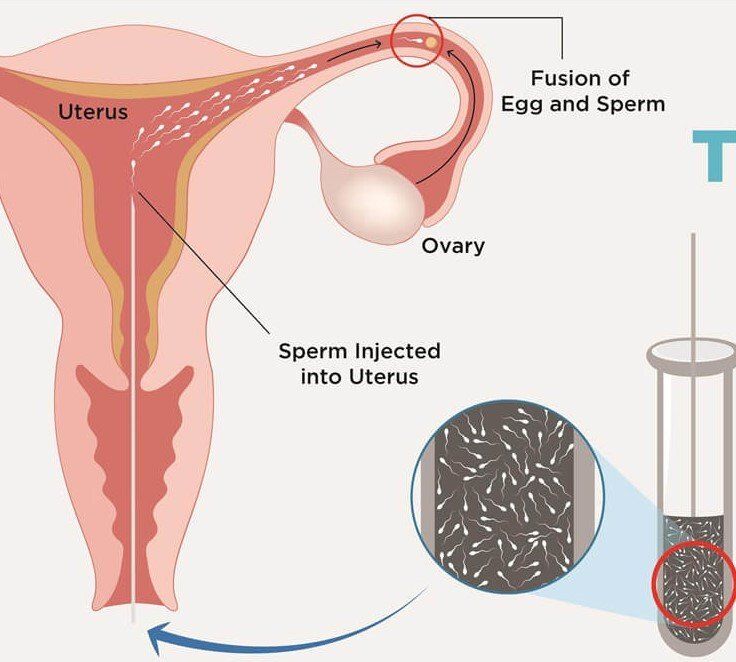Egg Freezing & Fertility Preservation
At Precision IVF, we understand that every woman’s fertility journey is unique. Whether you’re focused on career, education, personal goals, or facing a medical diagnosis, our advanced fertility preservation options help you secure your future family on your own timeline.

Understanding Egg Freezing and Fertility Preservation
You, as a woman, born with two ovaries and in each of them there are resting eggs known as follicles. At 20 weeks of gestation, you have about 6 million eggs, and this is as many as you will ever have in your lifetime. At birth, you will lose approximately half of your eggs, and by the time you reach puberty you will only have about 200,000 eggs left.
With age, the number and quality of eggs decrease, especially in the late 30s and early 40s. This natural activity, which is commonly referred to as the biological clock, may cause conception to be more difficult and predispose to more miscarriages and chromosomal anomalies.
Egg freezing helps women to store their eggs when they are at their healthiest to maintain the possibility of a healthy pregnancy in the future.
Who Can Benefit from Egg Freezing?
Women who may benefit from egg freezing include :
- Females aged 40 years and below without a partner or desiring not to use donor sperm but wish to save their fertility potential.
- Youthful women wishing to put off childbearing due to personal or professional reasons. They can freeze their eggs for use in the future when their natural ability to reproduce would otherwise be reduced.
- Women who will undergo medical procedures (chemotherapy, radiation, or pelvic surgery) which may impair her fertility.
- Women diagnosed with such conditions as ovarian cysts, endometriosis or those at risk of early menopause in terms of genetic disorders or family history.


Helping Cancer Patients to Preserve Fertility: Future Family Still Alive
A cancer diagnosis should not take away your dream of having a family. Many cancer treatments ,including radiation and chemotherapy, can cause infertility or significantly reduce fertility.
At Precision IVF, Dr. Arya and team recognize the urgency of providing fertility preservation treatment for cancer patients. We offer emergency consultations to ensure egg freezing can be done quickly before cancer therapy begins.
Our goal is to make fertility preservation treatment as simple and stress-free as possible during a physically and emotionally overwhelming time. In recent years, egg freezing technology has advanced significantly, making fertility preservation a highly effective and proven option.
Key Facts & Success Rates of Fertility Preservation
According to a 2025 report from the National Vital Statistics System, shows a significant rise in births among women aged 30 and above:
- Ages 30–34: 211,989 more births in 2023 compared to 1990, a 24% increase.
- Ages 35–39: 287,048 more births in 2023 than in 1990, a
90% increase.
- Ages 40 and older: 96,809 more births in 2023 than in 1990, a
193% increase.
- Women under the age of 38 who undergoes the procedure of freezing 15-20 mature eggs have a 70-80 percent probability of bringing home a baby.
- Ages 30–34: 211,989 more births in 2023 compared to 1990, a 24% increase.
- In women between 38-40 years of age, the probability of at least one live birth is 65-75% when 25-30 mature eggs are frozen.
- Of the estimated 1.5 million men and women who were diagnosed as having cancer in 2010, approximately 10 percent are younger than 45 years. Fortunately, with improved cancer treatment, overall five-year survival for all cancers among children, adolescents, and young adults is now 80 percent.
We At Precision IVF, understand how overwhelming a cancer diagnosis can affect your fertility. That’s why we offer fertility medications and services at low costs.
If cancer treatment could impact your fertility, contact us right away. Dr. Arya will schedule an emergency consultation and create a fast, personalized egg freezing plan to safeguard your future family.
The Egg Freezing Process :
Our fertility egg freezing process is designed to be efficient and supportive at every stage:
Consultation: Meet with our fertility specialist to discuss your medical history, goals, and ideal timeline.
Fertility Workup: Blood tests and ultrasound to evaluate ovarian reserve and hormone levels.
Ovarian Stimulation: Daily hormone injections to stimulate multiple eggs to mature.
Egg Retrieval: A quick, minimally invasive procedure performed under light sedation.
Freezing & Storage: Mature eggs are vitrified (rapidly frozen) and stored safely for future use.
Future Use: When you’re ready, eggs are thawed, fertilized, and transferred to the uterus.
Egg Freezing Cost & Financing Options
The cost of egg freezing can vary depending on your personalized treatment plan and the number of cycles needed. On average, most patients can expect to budget for:
- Initial consultation and testing
- Ovarian stimulation medications
- Egg retrieval procedure
- Freezing and long-term storage fees
Benefits of Freezing Eggs
- Preserve your fertility potential for the future
- Protect against age-related decline in egg quality
- Maintain reproductive independence and choice
- Reduce stress and pressure to conceive by a certain age
- Secure an option for future family planning after cancer or medical treatment
Why Choose Precision IVF?
- Nationally recognized fertility expertise
- Personalized treatment plans
- Advanced lab technology for egg freezing
- Compassionate, experienced clinical team
- Flexible scheduling and expedited care for urgent cases
- Supporting patients across the U.S., including Dallas, Fort Worth, Frisco, and surrounding areas

Fertility Preservation with: Precision IVF
Your fertility is a personal and empowering decision. Whether you’re planning or facing urgent medical treatment, Precision IVF is here to guide and support you every step of the way.
Schedule a consultation today to learn more about egg freezing, fertility preservation, and the options available to you.
Frequently Asked Questions
1. What is the best age for egg preservation?
Eggs should be frozen at the earliest age, which is usually during your 20s to early 30s, when the quality and quantity of egg are high. However, women up to age 40 may still benefit.
2. How long can eggs stay frozen?
To a great extent, frozen eggs will be stored indefinitely with some advanced methods such as vitrification will enable eggs to be frozen decades without compromising their quality.
3. Does freezing eggs guarantee a baby?
Although it has a high probability of successful pregnancy, the results are determined by the age, amount of egg, and personal health conditions.
4. Is fertility preservation procedure painful?
It is a minimal invasive procedure conducted at light sedation. Majority of the patients resume to normal activity the next day.
5. What happens when I’m ready to use my eggs?
Your frozen eggs are thawed, fertilized in our IVF lab, and the resulting embryos are transferred to your uterus.
6. How do I find a trusted clinic for egg freezing near me?
Look for clinics with experienced fertility specialists, high success rates, modern lab facilities, Clinics like Precision IVF, serving areas including Dallas, Fort Worth, Frisco, and El Paso provide comprehensive egg freezing options.





